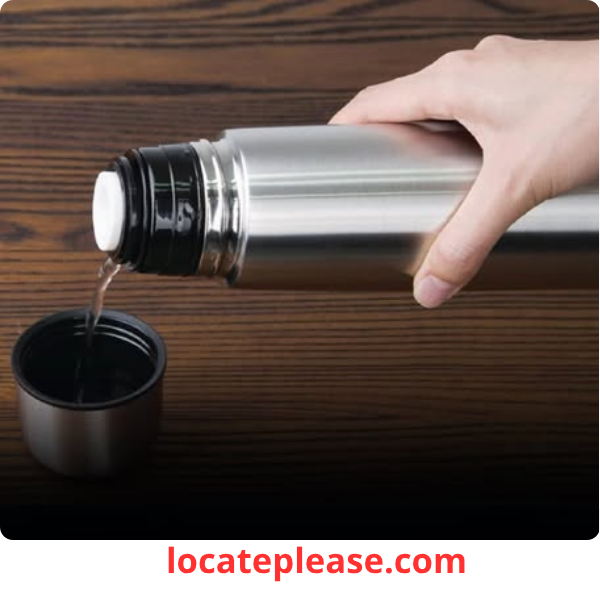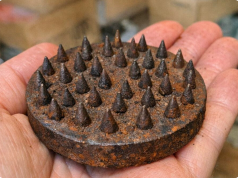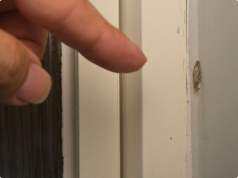A thermos is a trusty companion for keeping drinks hot or cold throughout the day — whether it’s your morning coffee, iced tea, or a soothing herbal infusion. But not all liquids are safe to store in a vacuum flask, especially over long periods.
While water seems harmless, not all types of water are suitable for thermos storage. Some can degrade the container, promote bacterial growth, or even become unsafe to drink.
Here are 3 types of water you should never store in a thermos — and why.
1. Carbonated Water (Sparkling Water, Seltzer, or Club Soda)
🚫 Why it’s dangerous:
Carbonated water contains dissolved carbon dioxide (CO₂), which creates pressure as it bubbles. When sealed in an airtight thermos, this pressure can build up quickly.
➡️ Risks:
- The thermos lid can pop off unexpectedly, causing a fizzy explosion.
- In extreme cases, the vacuum seal can be damaged, reducing the flask’s insulation ability.
- Glass-lined thermoses may even shatter from internal pressure.
✅ Safe alternative:
If you want to carry sparkling water, use a sturdy, leak-proof bottle designed for carbonated drinks — not a standard vacuum flask.
2. Tap Water Left for Hours in a Dirty or Uncleaned Thermos
🚫 Why it’s risky:
Plain tap water might seem safe, but if your thermos isn’t cleaned regularly, storing water in it can become a breeding ground for bacteria and mold.
Over time, residual sugars, saliva, or old liquid can accumulate in hard-to-reach areas (like the lid or spout), turning your thermos into a microbial playground.
➡️ Risks:
- Bacterial growth (like E. coli or mold spores) — especially if you’ve previously stored sugary or dairy-based drinks.
- Unpleasant odor and taste — a sure sign of microbial buildup.
- Potential illness — especially for those with weakened immune systems.
✅ How to stay safe:
- Wash your thermos daily with warm, soapy water.
- Use a bottle brush to clean the interior and lid.
- Disinfect weekly with a vinegar or baking soda solution.
👉 Note: Even plain water can become contaminated if the container isn’t hygienic.
3. Alkaline Water or Ionized Water
🚫 Why it’s problematic:
Alkaline water (typically with a pH of 8–10) is marketed for its health benefits, but it can be corrosive to certain metals — especially over time.
Many thermoses are made with stainless steel interiors, which are generally safe — but prolonged exposure to high-pH water can:
- Degrade the metal lining, especially if the thermos has micro-scratches.
- Leach metals like nickel or chromium into the water.
- Damage the vacuum seal due to chemical reactions.
➡️ Risk: Long-term use may compromise both the thermos and your health.
✅ Safer alternatives:
- Store alkaline water in glass or BPA-free plastic containers.
- Drink it immediately rather than storing it for hours.
- Check your thermos manufacturer’s guidelines — some explicitly warn against alkaline or ionized liquids.
Bonus: What Else Should You Avoid in a Thermos?
While not “water,” these liquids also pose risks:
- Milk or plant-based milks – Can spoil quickly and harbor bacteria.
- Juices with pulp – Hard to clean and ferment over time.
- Acidic drinks (like lemon water) – Can corrode metal over time, especially if stored for hours.
Best Water to Store in a Thermos
✅ Plain filtered or bottled water
✅ Herbal teas (cooled slightly if using a glass-lined flask)
✅ Electrolyte water (if consumed within a few hours)
Always follow the manufacturer’s instructions — and when in doubt, err on the side of caution.
Final Thoughts: Your Thermos Is a Tool — Use It Wisely
A thermos is designed for temperature retention — not for storing every liquid under the sun. While water seems harmless, the type and condition matter more than you think.
To keep your thermos safe, effective, and hygienic:
- Avoid carbonated, contaminated, or highly alkaline water
- Clean it daily
- Replace worn seals or lids
- Never leave liquids sitting for more than 12 hours
Because the safest drink isn’t just about what’s inside — it’s about how you store it.
Stay hydrated, stay safe — and leave the fizz and mystery water at home.






